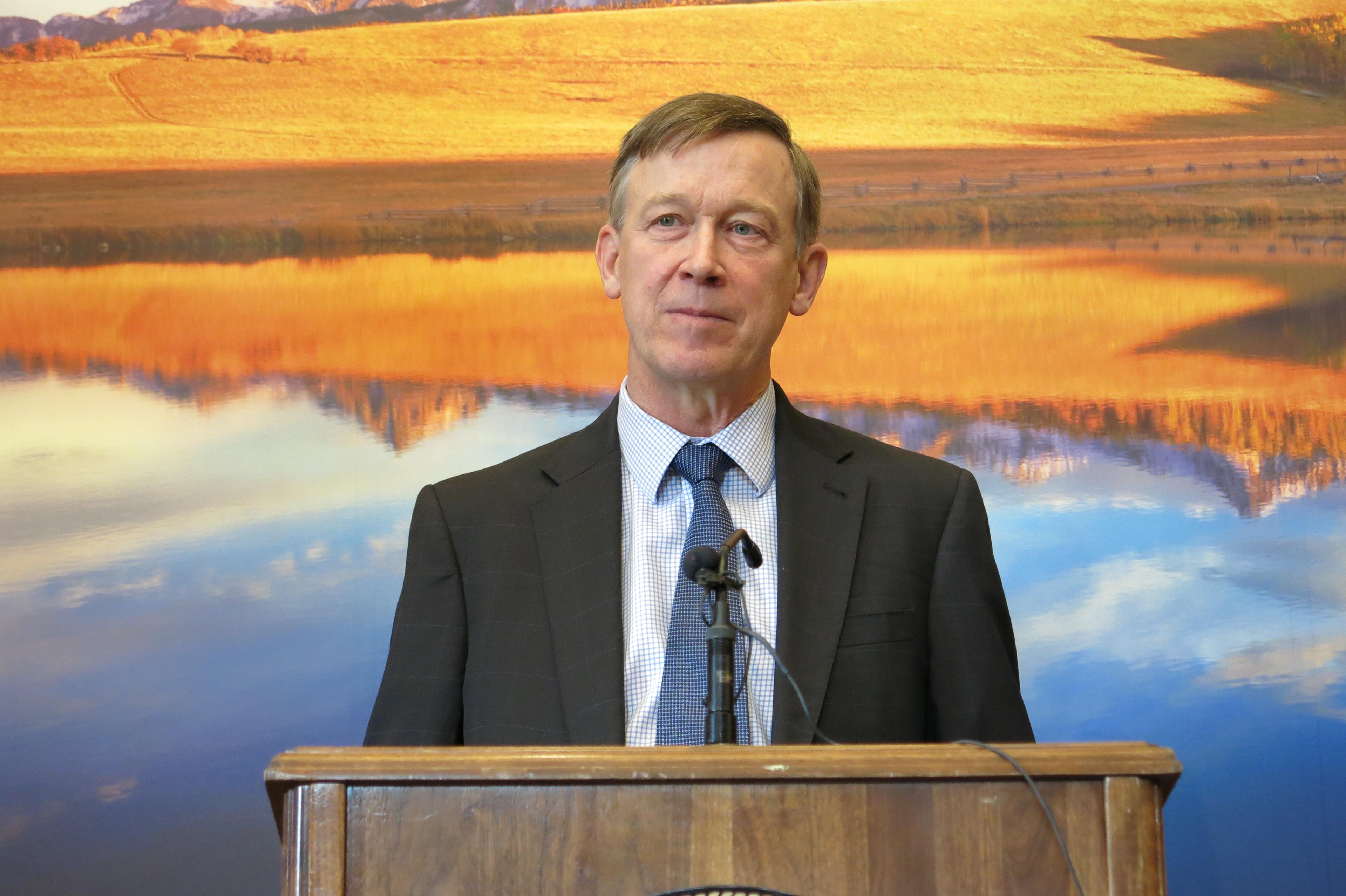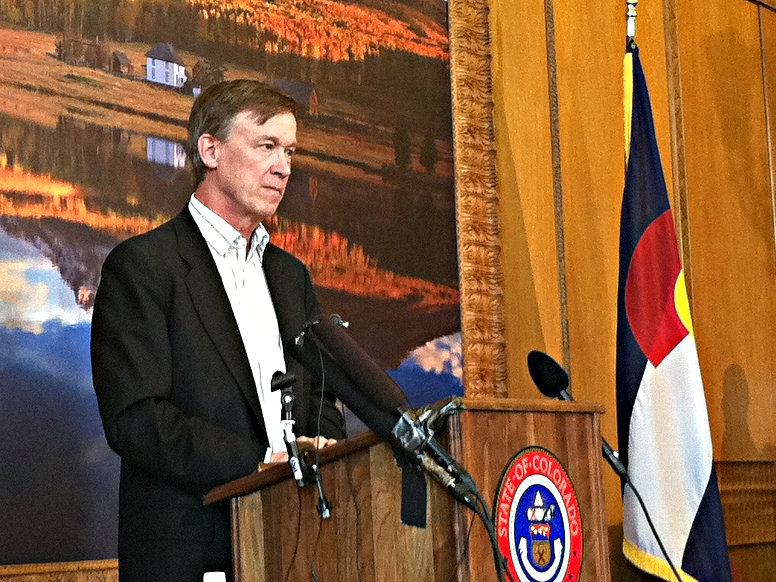

It's not often that Gov. John Hickenlooper gets agitated in interviews. But he got riled over a question about how he squares his concerns about climate change with his defense of a northwestern Colorado coal mine.
"This has nothing to do with climate change," Hickenlooper says of his efforts to convince the federal government to let the Colowyo mine keep operating. "You close this mine it will not reduce the amount of coal that's burned. It's a symbolic statement, I understand that. I get it. But these are people's lives. I don't think you can be a purist on this."
The Colowyo mine near Craig employs more than 200 people. Last month a federal judge in Denver ruled that the government needs to reconsider an eight-year-old permit that's allowed the mine to continue operating. The judge said regulators at the time failed to gather enough public comment or to consider the potential climate impacts from burning the mine's coal.
In response, Hickenlooper sent a letter to federal Interior Secretary Sally Jewell asking her to do "everything possible" to keep the mine open.
"This is simple business accounting," Hickenlooper told Colorado Matters host Ryan Warner. "There is a huge surplus of coal out there. There's a million different places to get it."
Instead, he says the way to reduce the amount of coal burned is by lowering demand, through renewable energy mandates and more use of natural gas, steps Colorado is already taking.
The governor touched on additional issues during the interview.
On whether employers should be allowed to fire workers who use medical marijuana:
"One of the specific parts of [Amendment 20] said that businesses, employers, would still have the right to restrict what their employees used."
The governor believes most companies will start to modify their zero tolerance policies, especially as the technology to detect impairment improves. He points to the state law that allows drivers to have up to 5 nanograms of active THC in their blood as a model.
"Here’s an appropriate limit that you can set that will protect your workplace but allow people who are using medical marijuana to be able to get the benefits that it gives them. And I think most businesses will get to that point. "
On criticism of the Department of Human Services and its director, Reggie Bicha:
The end of the legislative session last month exposed a widening rift between state lawmakers and leadership at the state's Human Services Department. In a letter to Hickenlooper, legislators laid out a wide range of complaints against the department and said they'd lost confidence in its management.
Hickenlooper says the Department was already in the process of tackling many of the concerns lawmakers raised, and the governor continues to stand strongly behind Director Reggie Bicha, whom he appointed.
"I think by next fall you'll see a more balanced approach from the legislature toward Reggie Bicha because he has been out meeting with them and really listening to them," says Hickenlooper. "I think that's part of what they felt was he was not sensitive to their concerns and was not responding to their concerns. Well, that's something he can adjust."
Hickenlooper also dismissed concerns raised in the letter that the state is failing to adequately monitor county Human Services Departments, which have an usual degree of autonomy in Colorado compared to other states.
"How families are monitored, how we make sure children are not at risk, that's something that counties and municipalities feel should be more of a local reasonability and should have local control. And we should put 100 percent of our effort into making that work," says Hickenlooper.
Still, the governor doesn't completely dismiss the idea of the state expanding its control of Human Services.
"If three years or five years from now we're not able to measure ourselves against other states, if we're still slipping, then at a certain point we have to look at other options. But for now I think we want to focus on taking the system we have and making it succeed."








